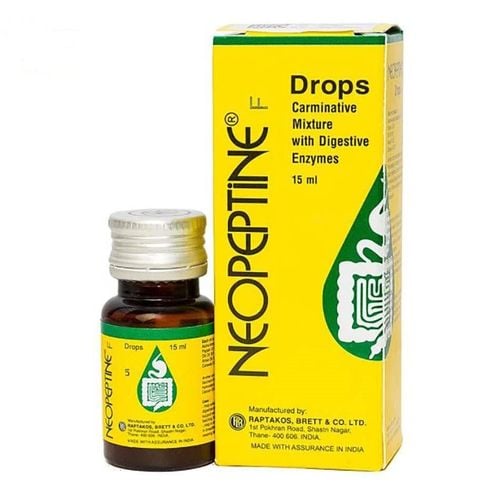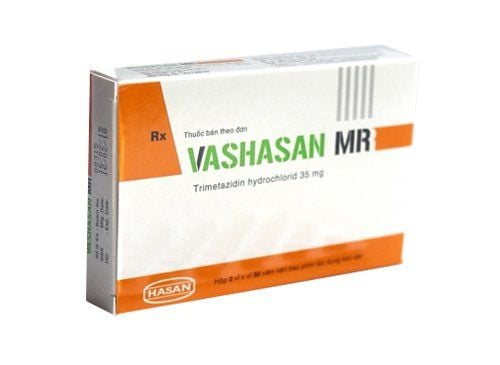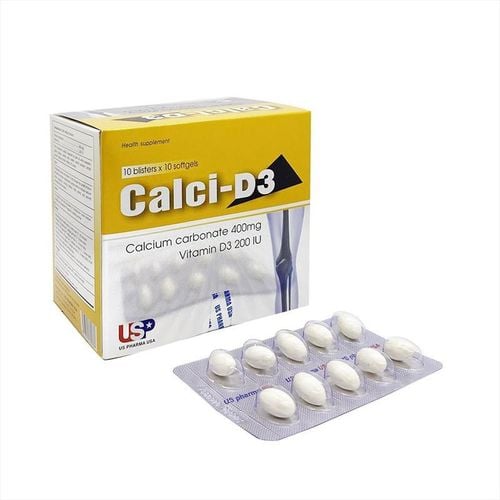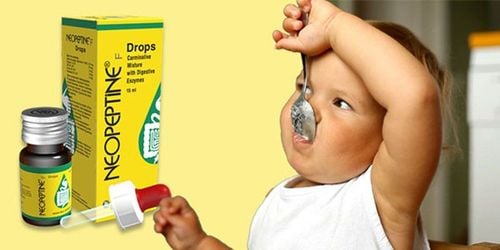This is an automatically translated article.
Fudplasma is commonly used in cases of fatigue, body weakness, nutritional deficiencies after surgery or vitamin and mineral supplements for pregnant women, lactating women, children in the developmental stage. development... Knowing the basic information about the composition, uses and dosage of Fudplasma will help improve the effectiveness of treatment and at the same time prevent the side effects of the drug.
1. What is Fudplasma?
Fudplasma medicine is made in the form of soft capsules containing essential vitamins and minerals for the body, including:
Vitamin E (or Tocopherol acetate) content 15 IU. Vitamin B1 (or Thiamin nitrate) content 5 mg. Vitamin B2 (or Riboflavin) 3 mg. Vitamin B6 (or Pyridoxine HCL) content 6 mg. Vitamin PP (or Nicotinamide) 10 mg. Glycerophosphic Acid 5mg. Calcium (as Calcium glycerophosphate) content 5 mg. Lysine HCL 75 mg. Excipients: Palm Oil, Soybean Oil, Lecithin, White Beeswax, Gelatin, Glycerin, Sorbitol, Propylparaben, Methylparaben, Vanillin, Brown Brown, Black PN Color, Brown Iron Oxide. Just enough for 1 softgel. In which: Vitamin E, also known as Tocopherol acetate, is essentially 8 fat-soluble antioxidants, which inhibit free radicals that damage the body's metabolism. The main use of Vitamin E is to smooth the skin, limit wrinkles, reduce dry and broken hair, in addition, this active ingredient can also help the development of the fetus, limit testicular atrophy, reduce the rate of premature birth and miscarriage. Vitamin E is found in certain foods such as cottonseed oil, sunflower oil, wheat germ oil, cereals, and eggs.
Vitamin B1 is converted into Thiamin Phosphate after being absorbed into the body. This active ingredient participates in the metabolic processes of the body, resulting in the reduction of fatigue, depression, stimulating digestive activity, enhancing concentration, nourishing the nervous and cardiovascular systems, increase muscle activity. Vitamin B2 participates in the metabolism of amino acids, purines and lipids, and participates in the energy generation of cells, supports hematopoiesis through the function of increasing red blood cell production. In addition, Vitamin B2 is also used to support the treatment of infections, severe injuries, or intestinal diseases such as prolonged diarrhea...
Vitamin B6 is converted into Pyridoxine Phosphate after being absorbed. absorbed into the body. This active ingredient plays a role in the metabolism of Glucid, Protein and Lipid, while supporting the immune system, participating in the synthesis of Gamma Aminobutyric Acid (GABA) of the central nervous system and stabilizing the health of red cells. required through the synthesis of Hemoglobin. Vitamin PP, after being absorbed into the body, can be converted into Nicotinamide Adenin Dinucleotid Phosphate (NADP) or Nikotinamide Adenin Dinukleotid (NAD), two active ingredients that act as a Coenzyme participating in catalysing redox reactions for cellular respiration, carbohydrate metabolism, amino acids or fatty acids. Calcium or Calcium glycerophosphate is an important active ingredient involved in the formation of bones, joints, cartilage and teeth, helping to protect the sustainability and integrity of cells in bones, cartilage and teeth. In addition, calcium is also involved in a number of activities of the heart muscle, cell metabolism, neuromuscular and blood clotting. In children, calcium is an essential substance for bone and joint development, strengthening immunity and destroying invading pathogenic bacteria.
Lysine HCL is an amino acid necessary for muscle growth.
2. What are the effects of Fudplasma?
Fudplasma drug is used for the following cases:
Body weakness, fatigue and lack of nutrients in the daily menu. Imbalance or nutritional deficiencies after surgery. Essential vitamin and mineral supplement for pregnant or lactating women. Supplementing essential vitamins and minerals for children with anorexia, rickets, malnutrition, growth retardation or children in the developmental stage. Strengthens resistance and supports quick recovery after illness.
3. Contraindications to the use of Fudplasma
Fudplasma is contraindicated in cases:
People who are sensitive to any component of Fudplasma drug. Hypersensitivity to drugs containing Vitamin E, Vitamin B1, Vitamin B2, Vitamin B6, Vitamin PP, Calcium. People with hypercalcemia or taking other drugs containing calcium. People with advanced peptic ulcer disease, severe hypotension, arterial bleeding or severe liver disease.
4. Usage and dosage of Fudplasma
Adults or children ≥ 5 years old:
Dose: Take 1-2 tablets/time x 2 times/day. Children 1 - 5 years old:
Dose: Take 1 tablet / time x 2 times / day. The dose can be increased or decreased for each individual case, but must consult with your doctor.
Recommendation:
Use Fudplasma after meals. Do not increase, decrease the dose or use Fudplasma by yourself without consulting your doctor.
5. Note when using Fudplasma
5.1 Undesirable effects of drugs Fudplasma Using drugs containing vitamins and minerals has very few side effects. However, the use of Fudplasma in high doses can cause the following symptoms:
Vitamin E: Anorexia, nausea, vomiting, stomach pain, diarrhea, cracked tongue, dizziness, dizziness and inflammation larynx . Vitamin B1: Side effects are rare, but symptoms such as profuse sweating, anaphylaxis, acute hypertension, dyspnea, skin rash, itching and urticaria may be encountered. Vitamin B2: Using Fudplasma in high doses can make the urine pale yellow, thereby distorting the parameters in the urine test. Vitamin B6: Numbness of hands and feet, unsteady gait are possible signs when taking more than 200mg of Vitamin B6 in a day. Vitamin PP: Usually non-toxic, however, symptoms of nausea, itching, flushing of the face and neck, skin pain and burning sensation may occur. Calcium: Dizziness, peripheral vasodilation, hypotension, arrhythmia, nausea, vomiting, flatulence and constipation. Stop using Fudplasma after detecting the above symptoms or any other unusual reactions. Patients and family members should notify their doctor about any abnormalities encountered after using Fudplasma and immediately go to the nearest medical facility for timely treatment
5.2 Note the use of Fudplasma in kidney subjects It is important to use Fudplasma in people with a history of peptic ulcers, jaundice, other liver diseases, gallbladder disease, gouty arthritis or diabetes. Pregnant women: Vitamin E: The amount of Vitamin E has little effect on the mother and the fetus, however, it is only necessary to supplement Vitamin E with medicine if the daily diet cannot supplement the mother's needs. Vitamins of the B group and Vitamin PP used at recommended doses have no evidence of harm to a pregnant woman. Breastfeeding women: The active ingredients in Fudplasma can pass through breast milk and provide vitamins and minerals to the baby. The use of Fudplasma at the recommended dose did not show any adverse effects on the breastfed infant. People who drive or operate machinery rarely experience side effects after using Fudplasma.
6. Fudplasma drug interactions
Interaction of Fudplasma with other drugs:
Avoid using Vitamin E and Vitamin K because it can increase blood clotting time. Active vitamin B6 in Fudplasma reduces the effect of Levodopa in the treatment of Parkinson's disease. Vitamin B6 at a dose of 200 mg/day may reduce the absorption of Phenobarbital and Phenytoin. Vitamin B6 taken with oral contraceptives may reduce the side effects of depression in women. Oral contraceptives increase the need for Vitamin B6. Drugs such as Probenecid, Chlorpromazine, Imipramine, Adriamycin, and Amitriptylin can decrease the absorption of Vitamin B2. Co-administration of Vitamin PP and Alpha-adrenergic Blockers increases the risk of excessive hypotension. Concomitant use of Vitamin PP and HMG-CoA reductase inhibitors can cause rhabdomyolysis. Concomitant use of Vitamin PP and Carbamazepine increases the concentration of Carbamazepine in the blood. Thiazide, Chlorthalidone, Ciprofloxacin, Loperamide inhibit the renal excretion of calcium. Drug interactions with drinks:
Alcohol interferes with the absorption of Vitamin B2 in the intestine. Above is an overview of the composition, uses, dosage, usage, contraindications and unwanted effects of Fudplasma. Patients should carefully read the instructions for use and should consult with their treating doctor before deciding to use Fudplasma.
Please dial HOTLINE for more information or register for an appointment HERE. Download MyVinmec app to make appointments faster and to manage your bookings easily.













